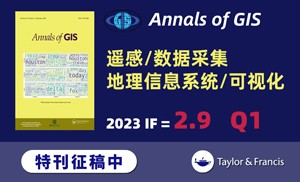Petroleum is a very complex and diverse organic mixture. Its composition depends on reservoir location and in situ conditions and changes once crude oil is spilled into the environment, making the characteristics associated with every spill unique. Polycyclic aromatic hydrocarbons (PAHs) are common components of the crude oil and constitute a group of persistent organic pollutants. Due to their highly hydrophobic, and their low solubility tend to accumulate in soil and sediment. The process by which oil is sourced and made available for use is referred to as the oil supply chain and involves three parts: (1) upstream, (2) midstream and (3) downstream activities. As consequence from oil supply chain activities, crude oils are subjected to biodeterioration, acidification and souring, and oil spills are frequently reported affecting not only the environment, but also the economy and human resources. Different bioremediation techniques based on microbial metabolism, such as natural attenuation, bioaugmentation, biostimulation are promising approaches to minimize the environmental impact of oil spills. The rate and efficiency of this process depend on multiple factors, like pH, oxygen content, temperature, availability and concentration of the pollutants and diversity and structure of the microbial community present in the affected (contaminated) area. Emerging approaches, such as (meta-)taxonomics and (meta-)genomics bring new insights into the molecular mechanisms of PAH microbial degradation at both single species and community levels in oil reservoirs and groundwater/seawater spills. We have scrutinized the microbiological aspects of biodegradation of PAHs naturally occurring in oil upstream activities (exploration and production), and crude oil and/or by-products spills in midstream (transport and storage) and downstream (refining and distribution) activities. This work addresses PAH biodegradation in different stages of oil supply chain affecting diverse environments (groundwater, seawater, oil reservoir) focusing on genes and pathways as well as key players involved in this process. In depth understanding of the biodegradation process will provide/improve knowledge for optimizing and monitoring bioremediation in oil spills cases and/or to impair the degradation in reservoirs avoiding deterioration of crude oil quality.
中文翻译:

对石油供应链中多环芳烃生物降解机制的宏基因组见解
石油是一种非常复杂和多样的有机混合物。其组成取决于储层位置和就地一旦原油泄漏到环境中,情况就会发生变化,使得每次泄漏的相关特征都是独一无二的。多环芳烃(PAH)是原油的常见成分,是一组持久性有机污染物。由于它们的高度疏水性和低溶解度,往往会在土壤和沉积物中积累。石油的采购和使用过程被称为石油供应链,涉及三个部分:(1) 上游、(2) 中游和 (3) 下游活动。由于石油供应链活动,原油遭受生物劣化、酸化和酸化,经常有报道称石油泄漏不仅影响环境,而且影响经济和人力资源。基于微生物代谢的不同生物修复技术,例如自然衰减、生物增强、生物刺激,是最大限度地减少石油泄漏对环境影响的有前途的方法。该过程的速率和效率取决于多种因素,例如 pH 值、氧含量、温度、污染物的可用性和浓度以及受影响(污染)区域中存在的微生物群落的多样性和结构。(元)分类学和(元)基因组学等新兴方法为油库和地下水/海水泄漏中单物种和群落水平的 PAH 微生物降解分子机制带来了新的见解。我们仔细研究了石油上游活动(勘探和生产)中自然发生的多环芳烃生物降解的微生物学方面,以及中游(运输和储存)和下游(精炼和分配)活动中的原油和/或副产品泄漏。这项工作解决了石油供应链不同阶段的多环芳烃生物降解影响不同环境(地下水、海水、油藏)的问题,重点关注基因和途径以及参与这一过程的关键参与者。对生物降解过程的深入了解将提供/改进优化和监测溢油案例中的生物修复和/或削弱油藏降解以避免原油质量恶化的知识。










































 京公网安备 11010802027423号
京公网安备 11010802027423号